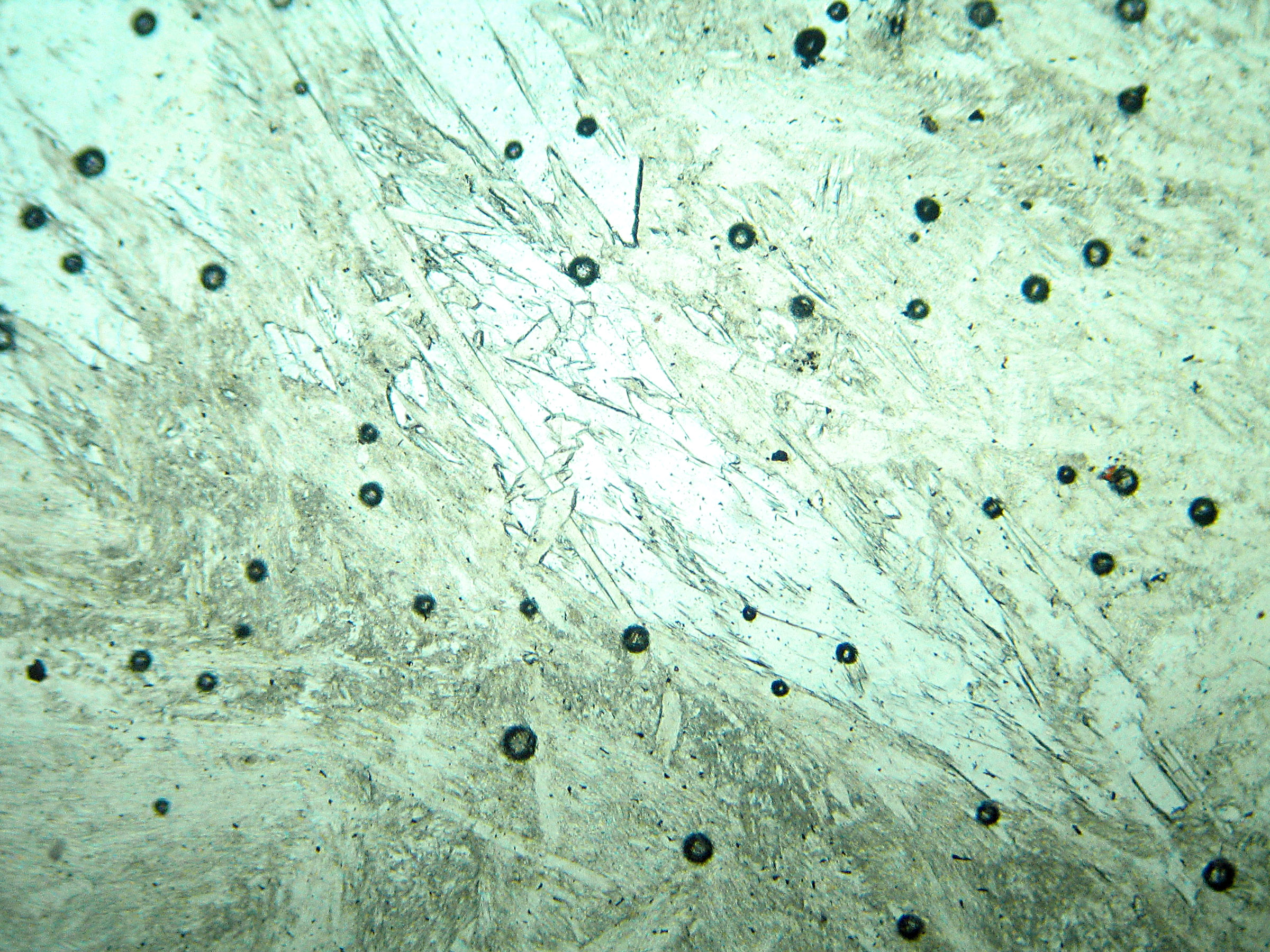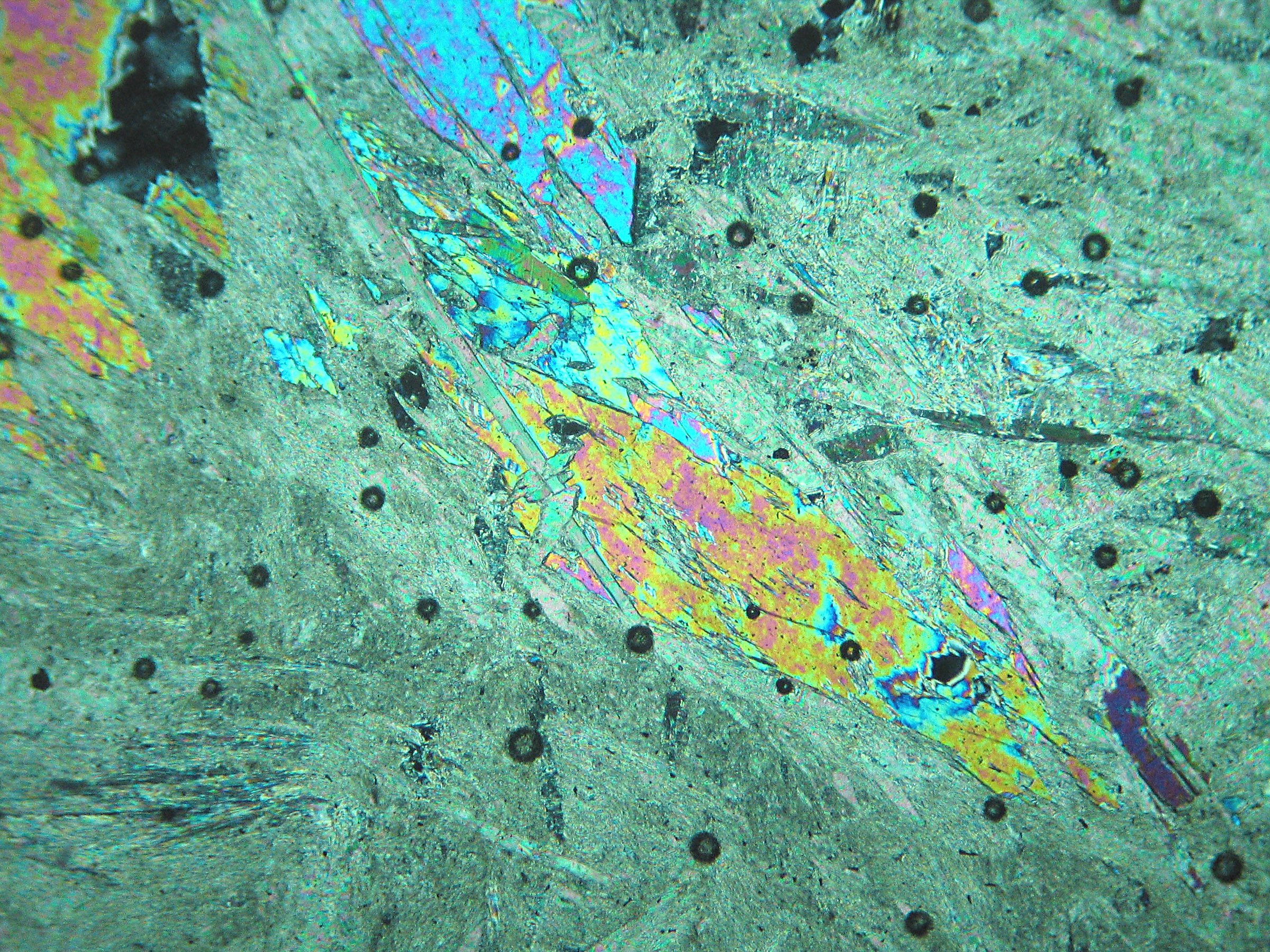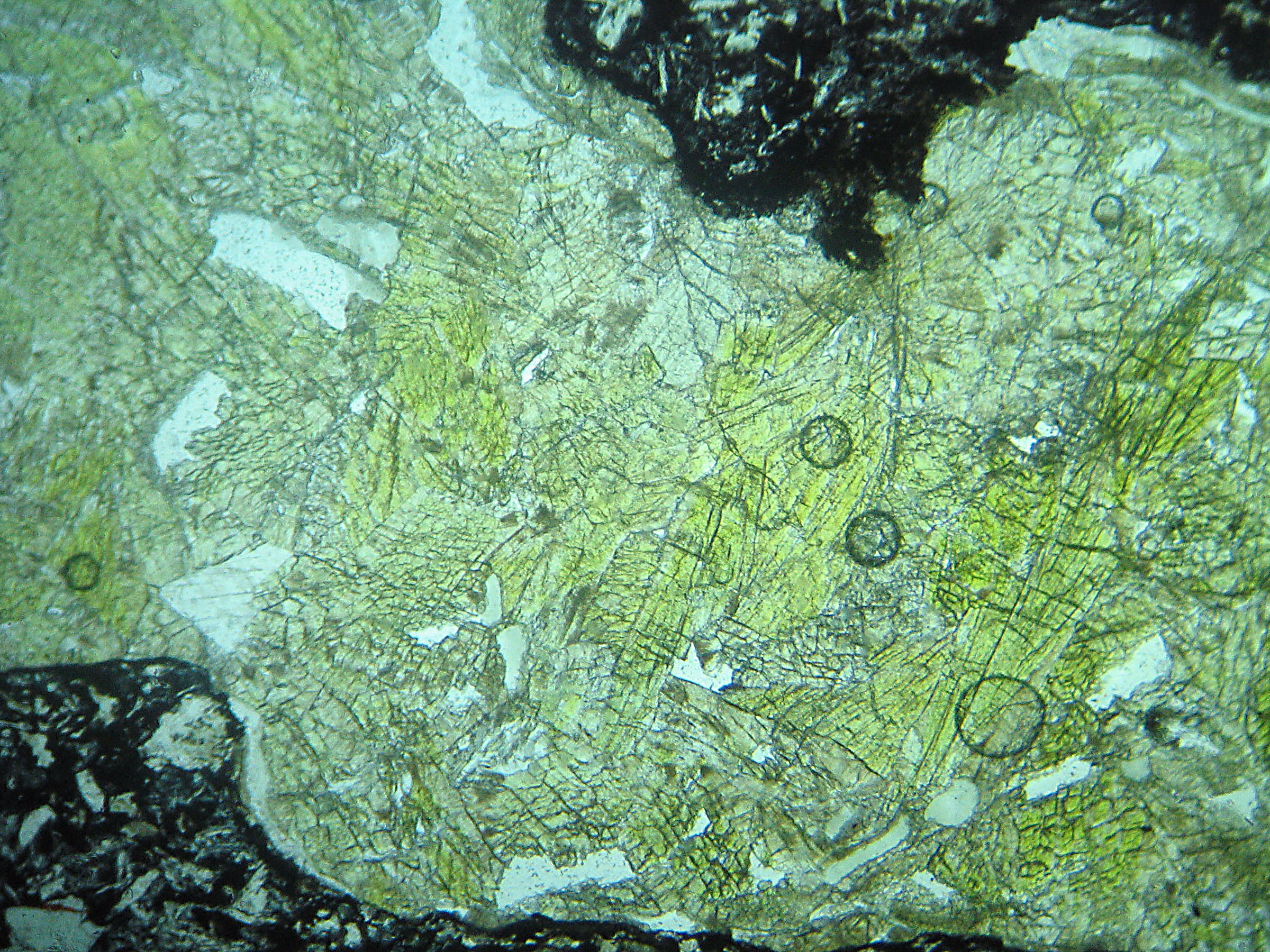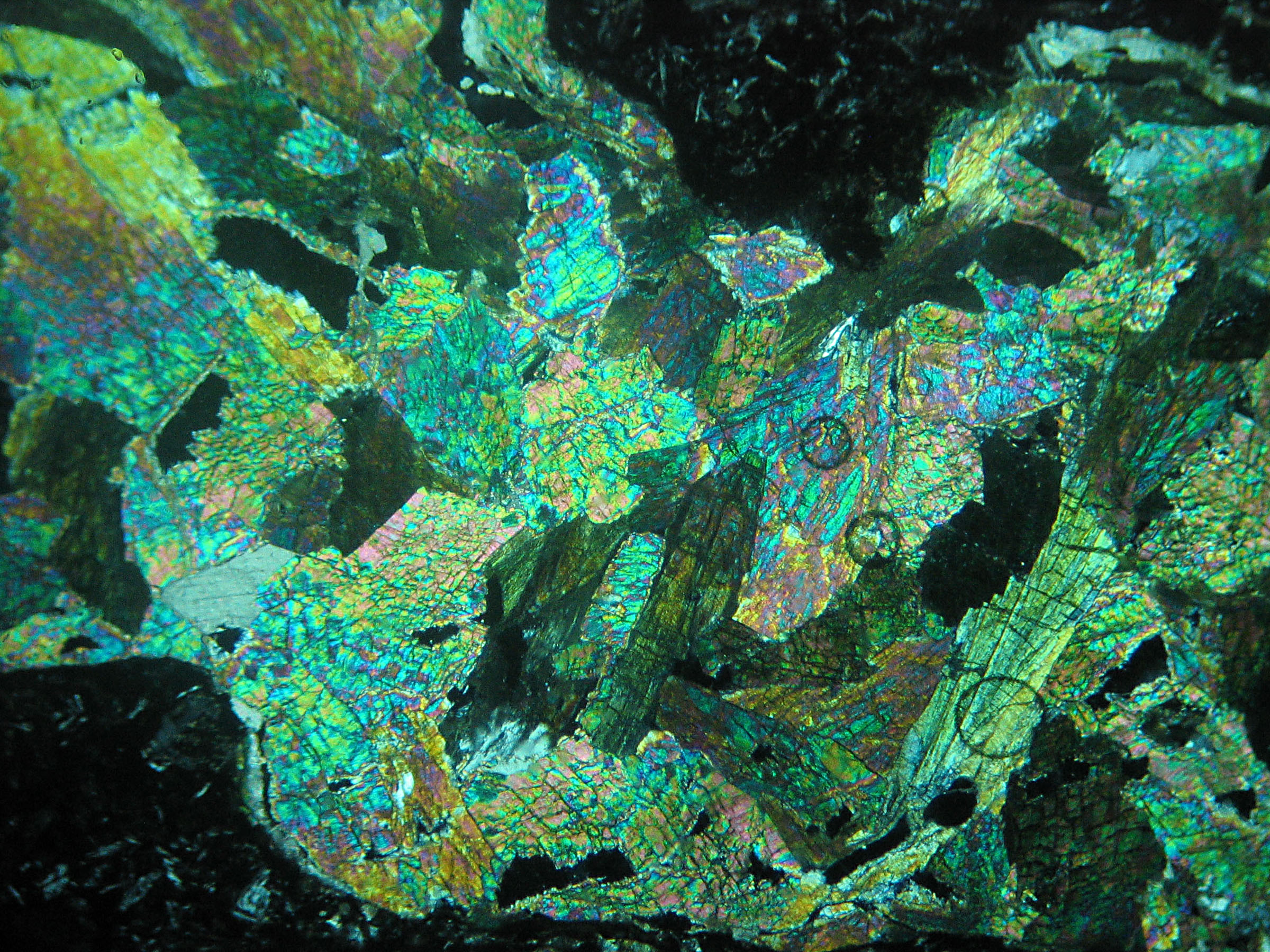Talc with Tremolite in a Schist


This is a talc-tremolite schist. The tremolite is clear
in PP light and has 2nd order interference
colors in the PP view. The talc, which
has a dingy green color in the PP view
shows extremely high order interference
colors -- almost "pearl white," in the XP view.
The field of view of these photos is about 2.5 mm. This thin
section was poorly made. Many small bubbles were trapped in the
epoxy when it was prepared. They appear as small round circles
in these pictures.


